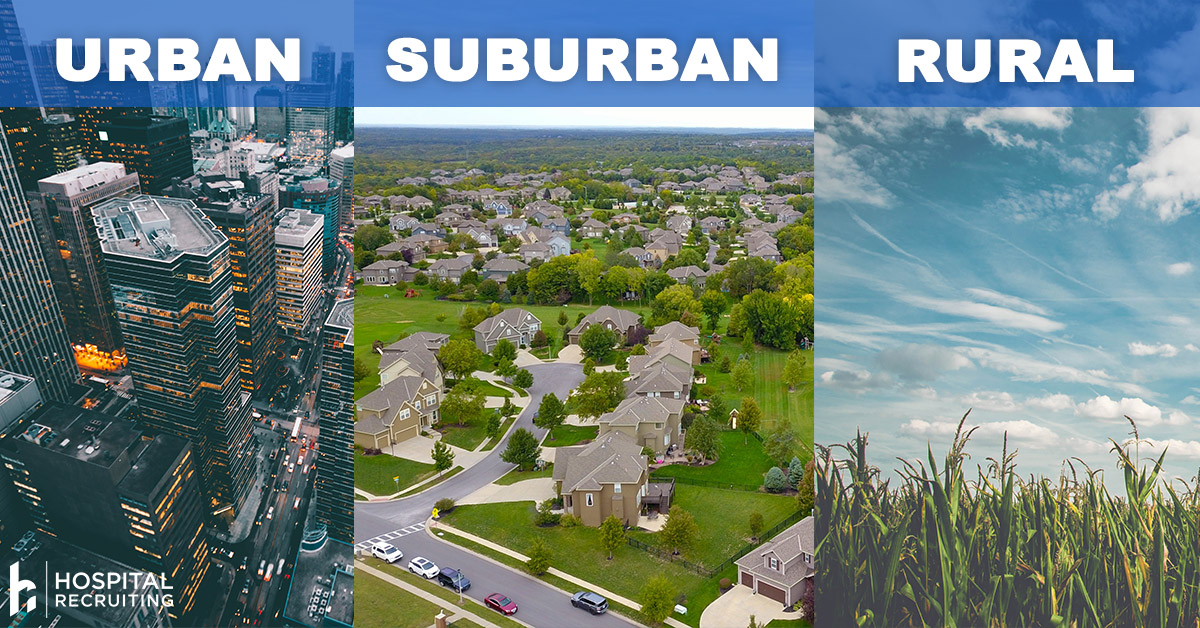Is the Physician Job Market Shifting to Rural Practice? was originally published on HospitalRecruiting.

Historically, most physicians have wanted to avoid rural practice and live in urban areas. Rural is defined as a population less than 2,500 people, though the US Census takes a broader view, defining rural as “all population, housing, and territory not included within an urban area.” This urban preference has driven up demand for rural doctors, leading to 20-30% higher salaries for doctors willing to set up practice or moonlight in small communities.
However, the COVID pandemic shifted many fundamental aspects of our lives, and the physician job market is no exception.
At the beginning of the pandemic in 2019, the Centers for Medicare and Medicaid Services (CMS) began reimbursing for “Virtual check-ins”- brief virtual encounters between the patient and a healthcare provider. In 2020, the pivot towards greater utilization of technology escalated as multiple industries, medicine included, scrambled for alternatives to the traditional face to face paradigm.
In March 2020, Medicare expanded their Telehealth coverage to “office, hospital, and other visits furnished via telehealth across the country and including in patient’s places of residence.”
Telemedicine, which was already being embraced by busy, technology-immersed Gen Xers, has become commonplace. With the advent of telemedicine, as well as urban flight away from large cities during the pandemic, the pay gap between rural and urban physician compensation has contracted. According to the New England Journal of Medicine, the rural physician compensation package is now on average no more than 10% more compared to their urban counterparts.

Your decision to practice in a rural vs urban area will undoubtedly have an impact on your lifestyle and daily experience. If you are a specialist looking at a rural job, your compensation might be higher if you have no competition. However, this may increase workload, call, etc.
Negotiating with insurance companies may be easier in smaller communities with less competition in payers. Your patient population will also be different – rural areas have a higher burden of disease.
According to the CDC, by 2019, rural areas had a 20% higher incidence of death by heart disease and 15% higher rate of death by cancer. On the other hand, many physicians find serving a rural community to be a less stressful and expensive endeavor. In smaller cities, traffic is less, the cost of living is cheaper, and escaping to nature is close at hand. While you may adore urban life as a single person, the smaller living spaces, increased costs, and more complicated commuting logistics may not be as feasible if you have a family.
With the corporatization of medicine, a large latitude for salary negotiation is becoming less common, particularly with large employer groups. However, never take the first offer, and don’t forget to take a look at your total compensation package, including performance bonuses, retirement benefits and matching, education reimbursement, and health insurance for you and your family. Consider other employer incentives, such as built-in telework, leave flexibility, on-call hours, and options for a more extended sabbatical. You may be able to negotiate improvements in these categories as well to make the job a more desirable total package. The decision on where to live and practice is an important one that merits careful consideration of your present and future needs and preferences.


